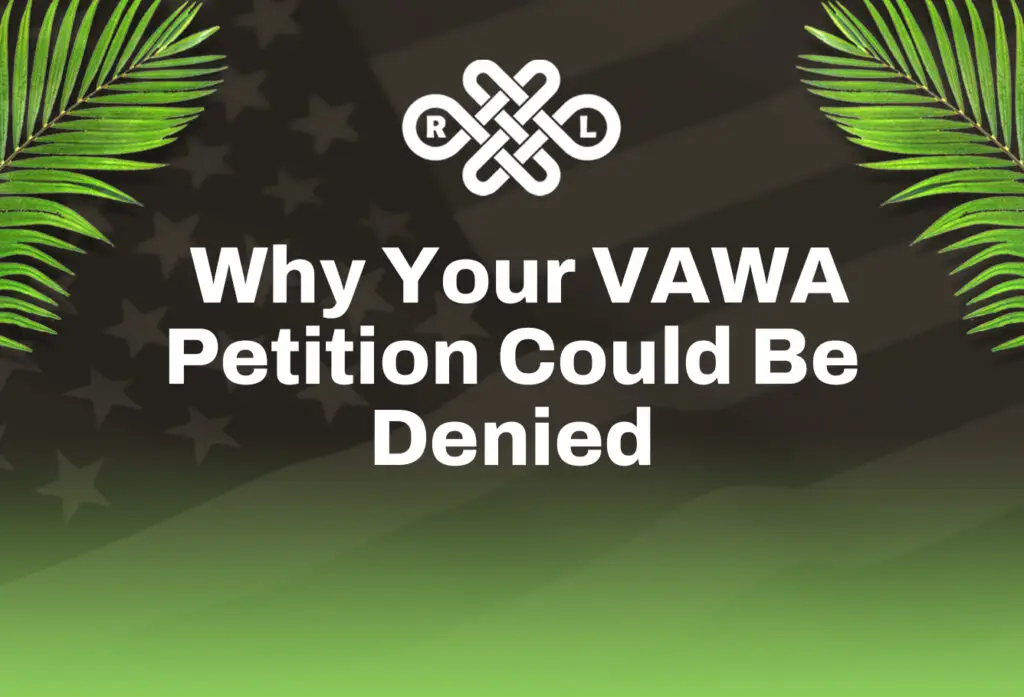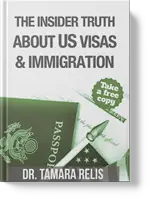
For many immigrant survivors of abuse, the Violence Against Women Act (VAWA) represents a critical path to safety, independence, and legal status in the United States. However, while the law is meant to protect, not all VAWA petitions are approved, and often, the reason isn’t just about eligibility. It’s about evidence, timing, and guidance.
Lack of Evidence and Incomplete Documentation
A leading reason VAWA petitions are denied is the failure to present clear and credible evidence of abuse. Many survivors believe that only police reports or visible injuries matter. Still, USCIS accepts a wide range of supporting documents, such as therapy records, affidavits, or letters from community members, as long as they help form a consistent and compelling narrative. The petition is at risk of denial when that evidence is vague, inconsistent, or incomplete.
Another critical and often overlooked requirement is demonstrating good moral character. Minor offenses or missing documents—like police clearance letters or character references—can raise serious concerns. These seemingly small oversights can have significant consequences. According to the official USCIS report for Fiscal Year 2023, only about 7,000 of nearly 29,000 VAWA petitions filed by spouses were approved. This striking figure highlights how unforgiving the process can be when proper documentation is not provided.
Relationship Challenges and Lack of Legal Guidance
Another common reason for denial is the failure to prove a qualifying relationship with the abuser. USCIS requires clear and reliable documentation that a genuine marriage or parent-child relationship existed. Missing documents—such as marriage certificates, divorce decrees, or proof of joint residence—can raise doubts about the legitimacy of the relationship, especially when there are inconsistencies in names or dates. Even when the relationship was real, such discrepancies can result in a denied petition.
Unfortunately, many applicants try to handle the process alone. Without proper legal support, even eligible individuals often make avoidable mistakes. The data makes this clear: according to the same USCIS 2023 report, fewer than 200 out of over 1,300 petitions submitted by children were approved. The numbers are even more alarming for parents—fewer than 600 approvals out of more than 20,000 petitions. These figures clearly show how essential it is not only to meet the legal requirements but also to present a well-prepared and fully supported case, ideally with professional legal guidance.
The Importance of Trauma-Informed and Culturally Sensitive Representation
Beyond the legal and procedural aspects, many VAWA petitioners face emotional, psychological, and cultural barriers that can affect how their case is presented. Survivors often struggle to talk openly about their experiences due to shame, fear, or cultural stigmas—especially when English is not their first language or when they come from communities where abuse is normalized or silenced. This is why having a legal team that not only understands immigration law but also practices trauma-informed and culturally sensitive representation is crucial. A compassionate attorney can help survivors feel safe, empowered, and understood, ensuring that their story is told in a way that resonates with adjudicators and meets the legal standards required by USCIS.
Next Steps: VAWA Is More Than Just Paperwork
Filing a VAWA petition isn’t simply about submitting forms—it’s about sharing your truth in a way that meets the legal standards required by USCIS. It demands more than courage; it requires patience, attention to detail, and a deep understanding of how to present your story clearly and powerfully. That’s why it’s essential to begin early, maintain thorough documentation, and most importantly, work with professionals who know this process inside and out.
At RelisLaw, we understand that every VAWA case is rooted in a personal journey of survival, strength, and resilience. We’ve supported individuals who came to us feeling afraid, unsure of their rights, and overwhelmed by the legal system. Our role goes far beyond legal representation—we are your advocates, your advisors, and your partners in this process. We take the time to listen with compassion, prepare your case with precision, and stand by your side every step of the way to help secure the safety and future you deserve. No matter your circumstances, don’t give up—your story matters, and your path forward is worth fighting for.
Dr. Tamara Relis
Latest posts by Dr. Tamara Relis (see all)
- When Following the Rules Isn’t Enough: The Reality of Immigration Detention - December 12, 2025





